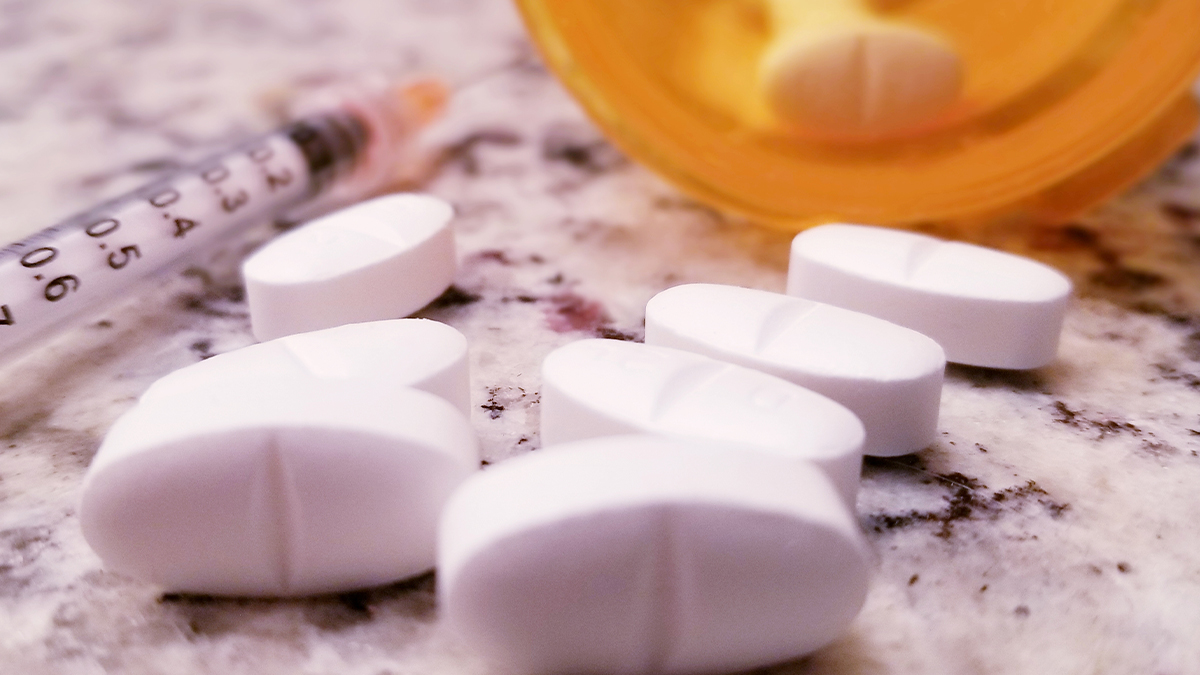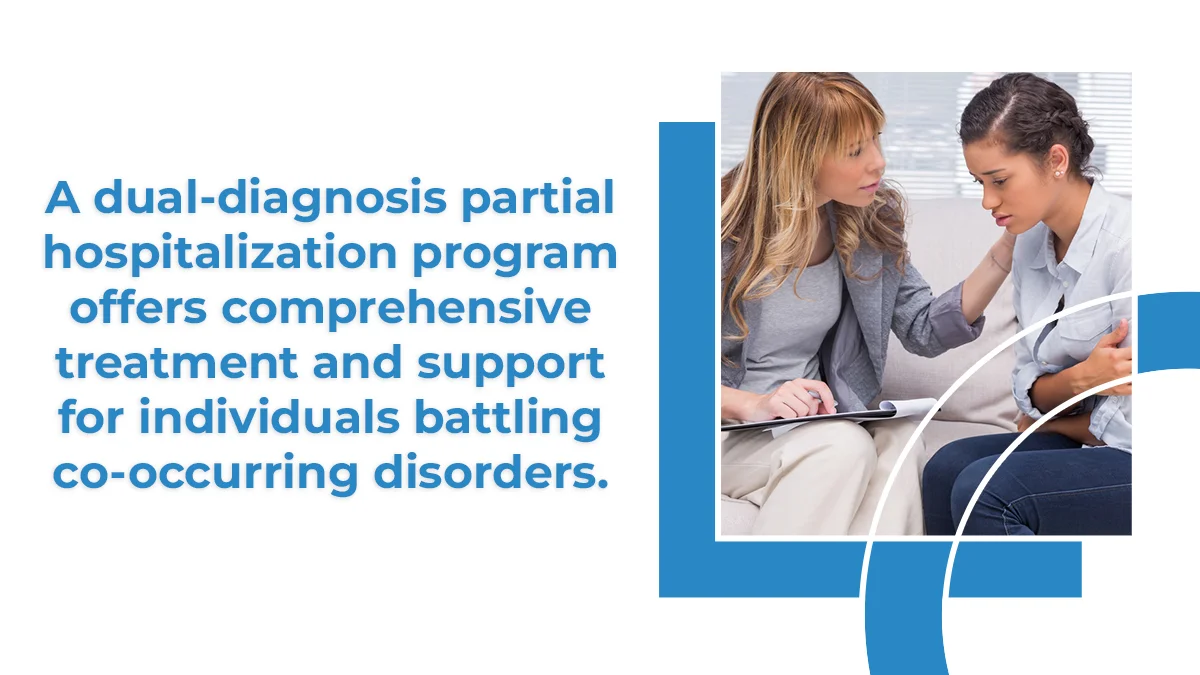
Lyrica With Suboxone: Risks And Safe Practices
The Recovery Team-Newton explores whether taking Lyrica with Suboxone is safe. Explore potential risks and guidelines

In recent years, dual-diagnosis partial hospitalization programs (PHPs) have emerged as a vital resource in the continuum of care. They offer intensive support and treatment for individuals facing both mental health disorders and substance use disorders (SUDs).
Keep reading as we delve into the key components and benefits of dual diagnosis PHPs.
Dual diagnosis, the presence of two or more co-occurring disorders, requires a comprehensive treatment approach. Here is what this article covers:
Contact The Recovery Team-Newton at (508) 978-2772 to learn more about how our dual diagnosis treatment program can support you.
Dual diagnosis refers to a medical condition where a person faces both a mental health disorder and a substance use disorder (SUD) simultaneously. This means that someone might have depression, anxiety, bipolar disorder, or any other mental illness along with a dependence on drugs or alcohol.
These conditions often interact and worsen each other’s symptoms, making treatment more complex. For example, someone with a depressive disorder might turn to drugs and alcoholic drinks to cope with their feelings, which can worsen both their mental health and substance abuse issues.
Having a dual diagnosis requires specialized care that addresses both the substance abuse and mental health aspects of the individual’s condition. Treatment for dual diagnosis typically involves counseling and therapy, medication, support groups, and lifestyle changes.
Without proper treatment, individuals with dual diagnosis are at a higher risk of witnessing serious consequences, such as legal problems, relationship difficulties, and even overdose or suicide.
A partial hospitalization program (PHP) is a structured treatment option for people grappling with mental health or substance abuse issues. It’s more intensive than outpatient care but less restrictive than inpatient treatment. In PHP, individuals attend therapy sessions and get medical care during the daytime but return home in the evenings.
PHP plays a crucial role in dual diagnosis treatment, where someone has both a mental health disorder and a substance use disorder. It offers comprehensive support for addressing both conditions simultaneously. With PHP, patients can access therapies tailored to their needs, including counseling, medication management, and skill-building activities.
PHP helps individuals manage their symptoms, develop coping strategies, and work towards lasting recovery by providing a structured space and access to professional support. In addition, it promotes stability and empowers patients to regain control of their lives while receiving ongoing treatment.
Dual diagnosis partial hospitalization program (PHP) integrates various components to provide holistic patient care and support. Here are the key components of a Dual Diagnosis PHP:
The initial step involves thorough assessments to identify both the substance use disorder (SUD) and the mental health condition. This includes evaluating the severity of symptoms, understanding the individual’s history, and identifying any co-occurring conditions.
Based on the assessment results, a customized treatment plan is developed. This comprehensive plan outlines specific goals and interventions to address the individual’s dual diagnosis. It serves as a roadmap for the individual’s journey towards recovery.
Counseling and therapy sessions are central to dual diagnosis PHPs. Various modalities, like cognitive-behavioral therapy (CBT), dialectical behavior therapy (DBT), and motivational interviewing (MI), are employed to address specific needs and promote emotional regulation and relapse prevention.
Pharmacological interventions may be necessary to manage symptoms of mental disorders and support recovery from substance use disorder (SUD). Medicines are carefully monitored and adjusted as needed to optimize effectiveness and minimize side effects.
PHPs offer support services to address various aspects of the individual’s well-being. This may include family and group therapy sessions, peer support groups, and access to community resources, helping individuals navigate challenges and build a solid support network.
Skill-building activities are incorporated into the PHP to help individuals develop practical tools for managing their symptoms and cravings. These activities may include stress management techniques, communication skills training, mindfulness exercises, and relapse prevention strategies.
Aftercare planning is a crucial component of PHPs to ensure continuity of care and support beyond the program. This involves developing a structured plan for ongoing treatment, support, and monitoring to prevent relapse and promote long-term recovery.
By integrating these components, dual diagnosis PHP provides a comprehensive and structured approach to treating individuals with co-occurring disorders.
Dual-diagnosis PHPs offer several advantages for individuals seeking treatment for co-occurring disorders. Here’s a breakdown of the benefits they provide:
A dual diagnosis PHP provides a flexible treatment schedule, allowing individuals to attend therapy sessions during the day while maintaining their daily routines and responsibilities. This flexibility makes it easier for those affected to access the care they need without disrupting their lives.
By bridging the gap between inpatient and outpatient care, PHPs offer an enhanced continuum of care. Participants receive intensive treatment and support while gradually transitioning to less intensive levels of care programs as they progress in their recovery journey.
Dual diagnosis PHPs integrate treatment for both mental health and substance use disorders, addressing the interconnected nature of these conditions. This integrated approach ensures that individuals receive comprehensive care options that cover all aspects of their well-being.
Through dual diagnosis PHPs, individuals learn essential skills for community reintegration. They receive support and guidance in navigating daily challenges, building healthy relationships, and accessing resources to support their recovery.
By providing these benefits, dual diagnosis PHPs aim to empower individuals to attain lasting recovery and improve their overall quality of life.
Choosing a dual-diagnosis PHP program is a significant decision that requires careful consideration. Here’s a breakdown of factors to consider:
Accreditation And Licensing: Look for facilities accredited and licensed by relevant regulatory bodies to ensure quality and compliance with standards.
Qualified Staff: Ensure the treatment facility has a team of health professionals with the appropriate qualifications and experience in treating dual diagnosis.
Integrated Treatment Approach: Seek programs that combine treatment for both mental health and substance abuse issues simultaneously for comprehensive care.
Evidence-Based Practices: Choose a facility that utilizes treatment methods and therapies backed by scientific research for effectiveness.
Customized Treatment Plans: Opt for facilities that tailor treatment plans to address each individual’s needs and circumstances.
Facility Environment: Assess the facility’s atmosphere and amenities to ensure it promotes a comfortable and supportive environment conducive to recovery.
Location And Accessibility: Consider the facility’s location and ease of access, including proximity to home, transportation options, and family support.
Cost And Insurance Coverage: Assess the financial aspects, including costs and insurance coverage, to ensure affordability and minimize financial stress.
Reviews And Testimonials: Review feedback from former clients and their families to gauge the effectiveness and satisfaction with the program.
By carefully considering these factors, you can make a sound decision when choosing a dual diagnosis PHP that best meets your needs or the needs of your loved one.
For dual diagnosis, medications can vary depending on individual needs. Common medications include antidepressants for mood disorders like depression, anti-anxiety drugs for anxiety disorders, and antipsychotics for conditions like schizophrenia. Medications for substance use disorders (SUDs) may include those that help manage withdrawal symptoms or cravings, such as methadone for opioid addiction or naltrexone for alcohol addiction.
Partial hospitalization programs (PHPs) can be effective for individuals needing intensive treatment but don’t require 24/7 care. They offer structured therapy and support during the day, allowing patients to return home at night.
PHPs provide services like psychotherapy, medication management, and skill-building activities. Research suggests that PHPs can be successful in helping people manage substance abuse or mental health issues while maintaining their daily routines.
If you’re struggling with dual diagnosis, know that you’re not alone. The Recovery Team-Newton is here to support you on your journey to recovery.
Our day treatment program offers comprehensive support tailored to your needs. From medication management to therapy and ongoing support services, our specialized dual diagnosis treatment program provides the tools and resources needed for long-term sobriety and mental wellness. With us, you can get on a journey towards healing and resilience.
Don’t wait any longer to seek help. Contact us today at (508) 978-2772 to learn how our team of medical professionals can support you on the path to a brighter, healthier future.

The Recovery Team-Newton explores whether taking Lyrica with Suboxone is safe. Explore potential risks and guidelines

Learn about Suboxone injection side effects and explore recovery solutions in this guide by The Recovery Team-Newton.